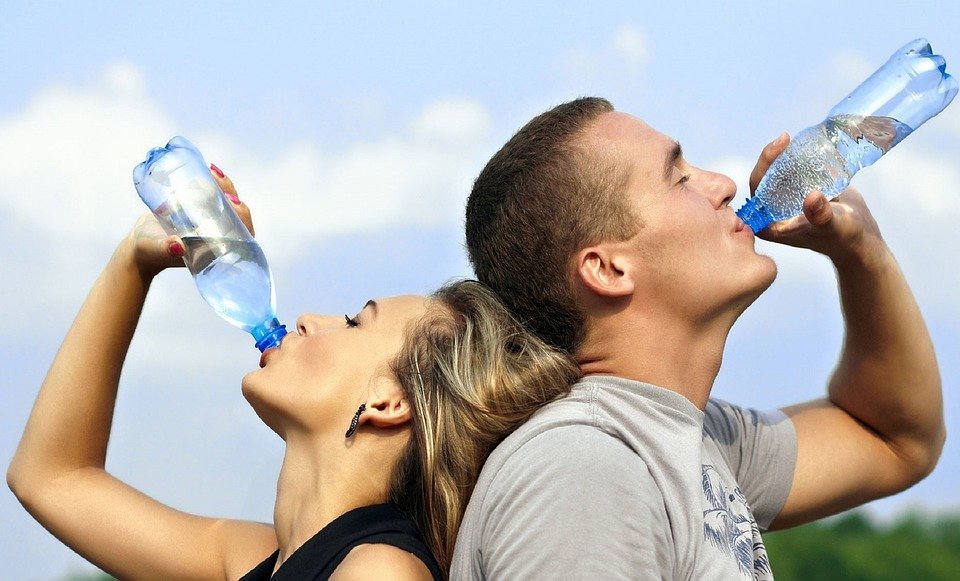Adequate hydration practices are vital towards your health. As much as 60% of the adult human body is made up of water¹. Some water functions in the human body include joint lubrication, organ and tissue protection, body temperature regulation, salivation formation, and digestion assistance¹ ². Water intake can also play a beneficial role in weight management by helping with hunger and satiety cues. For example, you may feel hungry when your body needs water versus food. Water is also important for diabetic control because drinking adequate fluid may help your body eliminate excess glucose through your urine.
The recommended amount of water to consume varies on your overall health, environment, and exercise level. If you have a fever, pregnant, or are experiencing vomiting and/or diarrhea you may require more fluid. If the weather is hot or you live in a high altitude you may require more fluid. If you engage in activity where you sweat regularly more water may be necessary. Water is the best choice to hydrate, but you can hydrate through all beverages. Be cautious with a regular intake of sugary beverages which may result in weight gain or increased blood glucose levels. The Harvard School of Public Health highlights healthy beverage guidelines where the Beverage Guidance Panel illustrated beverage suggestions in a six-level pitcher².
Try these 5 simple strategies to stay adequately hydrated:
- Hydrate regularly throughout the day by spacing out your beverage intake. Choose water first and limit sugary beverages. If water is not appealing for every drink, quench your thirst with unsweetened tea, low fat milk or non-calorically sweetened beverages. Rotate a glass of water with another beverage, such as unsweetened tea. Be aware that it is possible to drink too much water, which can lead to a low sodium content in your blood.
- Check your urine color to assess your hydration level. Aim for a clear to pale yellow color. For best results, gradually consume fluid throughout the day.
- Familiarize yourself with common symptoms of dehydration. Common symptoms of dehydration include feeling thirsty, dry mouth or skin, feeling tired, dark urine color, as well as urinating or sweating less³. Be aware that a common symptom of diabetes is extreme thirst, so if you are not sure you are adequately hydrated speak with your physician.
- Consume water rich foods like fruit and vegetables. Fruit and vegetables are also naturally low in calories and high in vitamins and minerals.
- Limit alcohol intake. The 2015-2020 Dietary Guidelines for Americans recommends at most one drink daily for women and 2 drinks daily for men.
Sources:
